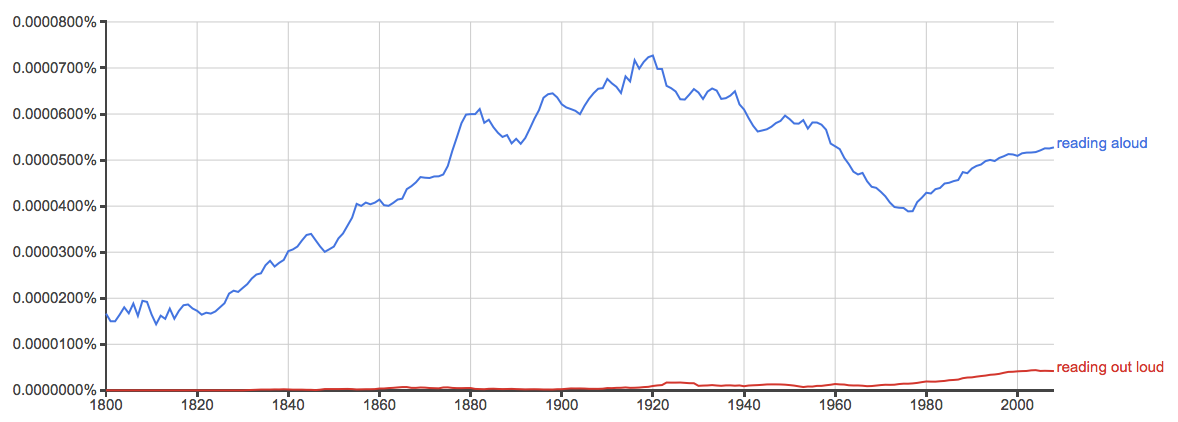Aloud and out loud are a few English words that leave people wondering. Not many writers know whether or not there is a difference between them or if they can be used interchangeably.
This problem is further compounded when speaking, because one rarely takes the time in casual conversation to actually think about the differences between two word choices that are so much alike. Are these just variations of the same word? What are their functions inside a sentence? Should I use aloud or out loud?
In my post today, I want to go over all of these questions. I will cover the definitions of both words, their functions within the sentence, and a brief history of each word.
After reading this post, you shouldn’t ever mix up aloud vs. out loud again.
What is the Difference Between Aloud and Out Loud?
 Aloud is an adverb defined as “with the use of the voice; orally, and audible, not silently or in a whisper.”
Aloud is an adverb defined as “with the use of the voice; orally, and audible, not silently or in a whisper.”
To say something aloud is to say it in a voice that can be clearly heard, and can be distinguished from a whisper.
Out loud (two words) functions as an adverbial phrase and means basically the same thing as aloud. Out loud is defined as “loud enough to be heard.”
Can They Be Used Interchangeably?
While they both appear to carry the same meaning, there is one possible difference between the two.
Some dictionaries, including the Oxford English Dictionary, add the words “aloud, without restraint” to the definition of out loud. This means that out loud is probably the more appropriate word choice for a sudden outburst such as a scream or shout. It is more emphatic and can connote something involuntary or inappropriate.
For example, out loud is commonly paired with the verb to blurt.
- He didn’t raise his hand but instead blurted the answer out loud.
You never see to blurt and aloud paired together.
Similarly, if you consider the phrase “laugh out loud,” it is usually not something you choose to do but, instead, an involuntary response.
- After reading the joke, he could not help but laugh out loud.
But what about something intentional and controlled like reading? Do you read out loud or aloud? This popular phrase is almost invariably to read aloud, with aloud being the preferred choice by many multiples (see chart below).

All of that said, these variations are generally used interchangeably in modern usage. You should choose whichever word fits better and goes with the rhythm of your prose—yet keeping in mind the possible differences they evoke.
History of Aloud and Out Loud
 According to the American Heritage Dictionary of Idioms, out loud first came onto the scene in 1821 as a colloquialism for aloud. This means it is considerably younger than aloud, which has a recorded date all the way back to 1374.
According to the American Heritage Dictionary of Idioms, out loud first came onto the scene in 1821 as a colloquialism for aloud. This means it is considerably younger than aloud, which has a recorded date all the way back to 1374.
Perhaps this is part of the reason why aloud has a perception of being outdated or more formal to some. The truth is neither choice is more formal than the other.
Summary
Out loud and aloud both function as adverbs and are generally used interchangeably, but there can be a difference between out loud vs. aloud.
Aloud means to say something audibly so people can clearly hear you. It contrasts a whisper that cannot be heard.
Out loud means to say something loud enough to be heard. It is perhaps the preferred word choice to indicate a sudden outburst.
Contents
